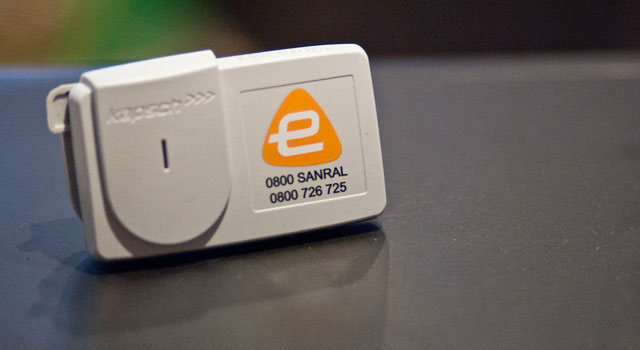
The controversial e-tolling system has won an international award for technology, the roads agency Sanral said on Tuesday.
“Sanral has just been announced as a winner of an international award for the excellence of its work,” spokesman Vusi Mona said.
It was awarded the 2013 Toll Excellence Award by the International Bridge, Tunnel and Turnpike Association (IBTTA), even though e-tolling was not yet operating as anticipated on Gauteng highways.
The only system in place was the use of e-tags at the N1/N4 Bakwena toll plazas, which incorporated a manual tolling system.
Sanral CEO Nazir Alli welcomed the award, saying it “underlined the excellence of the work the agency is doing on the national roads of South Africa, in particular the inter-operability of the e-toll system on the Gauteng Freeway Improvement Project (GFIP)”.
The awards were based on nominations received from IBTTA’s 26 member countries for the categories of technology, customer service, administration, operations and social responsibility.
Sanral nominated itself in the category, describing its e-tolling system as high-tech and a “world-first”.
One of the entry requirements was that the project have at least 12 months of proven experience.
Implementation of the e-tolling system has been delayed by a lengthy court battle, led by the civil society group, Opposition to Urban Tolling Alliance (Outa).
The high court in Pretoria granted Outa leave to appeal its dismissal of the civil group’s application to have e-tolling scrapped, and this will be heard by the supreme court of appeal in Bloemfontein in September.
Sanral said it had nonetheless qualified for the award.
“The open road toll (ORT) system has been running live for over a year, even though toll collection did not commence. Since September 2012, the system has been inter-operable with Bakwena, in other words, running live with electronic toll collection being carried at the Bakwena Toll plazas,” Mona said.
He said the gantries were gathering data and could calculate how many people were using the roads. “Everything that system is meant to do, it is doing. The only thing that is not happening is actual toll collection.”
According to the entry form on its website, an independent panel of judges evaluated the projects on three criteria. These are: the extent to which the project achieved its objectives and the “positive impact for the customer, the agency, and/or the community”; how relevant and applicable the project was to the tolling industry; and the extent to which the project represented “excellence and an extraordinary achievement” for the relevant toll agency.
Sanral was asked what positive impact the e-tolling system had had on the community since it was not fully in place. “The project has eased traffic congestion on the Gauteng network,” Mona said, referring specifically to the GFIP. “Research by the TomTom Congestion Index shows the improved interchanges have relieved traffic congestion in Gauteng and decreased it in comparison to other regions in South Africa.”
He said because e-tolling did not require vehicles to stop, it would ease motorists’ frustration on the roads and reduce the danger of stopping in less safe areas.
Sanral warned motorists this week that they needed to get their e-tags and register for payment because e-tolling was “set to start in the near future”.
The awards would be presented at IBTTA’s annual meeting in Vancouver, Canada, on 23 September. — Sapa




